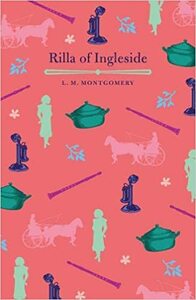Take a photo of a barcode or cover
challenging
emotional
hopeful
inspiring
reflective
tense
medium-paced
Plot or Character Driven:
A mix
Strong character development:
Yes
Loveable characters:
Yes
Diverse cast of characters:
No
Flaws of characters a main focus:
Yes
challenging
emotional
funny
hopeful
sad
medium-paced
Plot or Character Driven:
Character
Strong character development:
Yes
Loveable characters:
Yes
Diverse cast of characters:
No
Flaws of characters a main focus:
Yes
emotional
hopeful
relaxing
sad
medium-paced
Plot or Character Driven:
Character
Strong character development:
Yes
Loveable characters:
Yes
Diverse cast of characters:
No
Flaws of characters a main focus:
Yes
emotional
hopeful
lighthearted
fast-paced
Plot or Character Driven:
Character
Strong character development:
Yes
Loveable characters:
Yes
Diverse cast of characters:
No
Flaws of characters a main focus:
Yes
emotional
hopeful
reflective
sad
medium-paced
Plot or Character Driven:
A mix
Strong character development:
Yes
Loveable characters:
Yes
Diverse cast of characters:
No
Flaws of characters a main focus:
Complicated
Five stars. Enter Rilla: annoying 15 year old who’s vanity and lack of goals in her life were a lil annoying. Somehow we still rooted for her. Enter WW1 with test after test.
She who hates babies has to take care of one when it’s parents aren’t around and she raises it as her own.
By the end, all of her brothers have gone off to war, and all her friends, and the guy she ends up marrying later.
Also one of her brothers (Walter) dies. And it is painful and beautiful.
So this is a story of growing up and how the war changes you. It has lots of bits in there like the “new moving pictures” and “women in the Red Cross” and how “women had to step up with the men gone” and all these things that we’re also learning about while studying WW1 in History of Costume. So cool to read about it in a book written by someone (L M Montgomery) for whom WW1 was very hard.
Also about Walters death. In it Rilla grieves but doesn’t wear black. WW1 was the first time people started heading away from the Victorian mourning idea bc everyone was losing everyone. So having her not wear black but still grieve was heartbreaking and etc.
She who hates babies has to take care of one when it’s parents aren’t around and she raises it as her own.
By the end, all of her brothers have gone off to war, and all her friends, and the guy she ends up marrying later.
Also one of her brothers (Walter) dies. And it is painful and beautiful.
So this is a story of growing up and how the war changes you. It has lots of bits in there like the “new moving pictures” and “women in the Red Cross” and how “women had to step up with the men gone” and all these things that we’re also learning about while studying WW1 in History of Costume. So cool to read about it in a book written by someone (L M Montgomery) for whom WW1 was very hard.
Also about Walters death. In it Rilla grieves but doesn’t wear black. WW1 was the first time people started heading away from the Victorian mourning idea bc everyone was losing everyone. So having her not wear black but still grieve was heartbreaking and etc.
adventurous
reflective
relaxing
medium-paced
Plot or Character Driven:
Plot
Strong character development:
Yes
Loveable characters:
Yes
Diverse cast of characters:
No
Flaws of characters a main focus:
Yes
emotional
The best part was Jim's. And the rest was boring and lame. So far her only bad book. What a disappointment to end this book series on.
A History Of War: Anne's Daughter's Perspective.
A weird and unsatisfying ending, if I'm honest. I usually end earlier in the series when I'm rereading and there's clearly a reason for that.
^
I'm coming back to edit this, because the unsatisfying lisp of an ending isn't what's been making me feel weird about this. Anne of Green Gables has always been my comfort read when I'm not feeling well, or when the world is feeling a bit too bleak, and this book is far from that.
This book, watching the Handmaid's Tale series, and recent news have been very good at making me understand why people would willingly go to war. I'd always thought that if a war the scale of this happened now, far fewer people would willingly sign up - that I'd obviously go to prison, if it came to that, rather than allow myself to be conscripted. I've never really paused to think about what I would be willing to go to war over, and this book has been part of a recent slow understanding of why people have, and why I would.
And if I would, if people were at my door and threatening my way of life, then the cognitive dissonance of why I'm not fighting already, just because it's not happening in my own country, is absolutely terrible. While my own little corner of the world is safe, it doesn't matter to me what's going on in the rest of it. I'll feel bad, but if it's not directly affecting me, there's no reason for me to risk anything.
I hate that, and I hate thinking about it, and this book bothered me because it made me confront that horrible double think.
So well done Ms Montgomery, but also, give me back Anne's dreams and optimism -- don't end on this.
A weird and unsatisfying ending, if I'm honest. I usually end earlier in the series when I'm rereading and there's clearly a reason for that.
^
I'm coming back to edit this, because the unsatisfying lisp of an ending isn't what's been making me feel weird about this. Anne of Green Gables has always been my comfort read when I'm not feeling well, or when the world is feeling a bit too bleak, and this book is far from that.
This book, watching the Handmaid's Tale series, and recent news have been very good at making me understand why people would willingly go to war. I'd always thought that if a war the scale of this happened now, far fewer people would willingly sign up - that I'd obviously go to prison, if it came to that, rather than allow myself to be conscripted. I've never really paused to think about what I would be willing to go to war over, and this book has been part of a recent slow understanding of why people have, and why I would.
And if I would, if people were at my door and threatening my way of life, then the cognitive dissonance of why I'm not fighting already, just because it's not happening in my own country, is absolutely terrible. While my own little corner of the world is safe, it doesn't matter to me what's going on in the rest of it. I'll feel bad, but if it's not directly affecting me, there's no reason for me to risk anything.
I hate that, and I hate thinking about it, and this book bothered me because it made me confront that horrible double think.
So well done Ms Montgomery, but also, give me back Anne's dreams and optimism -- don't end on this.








